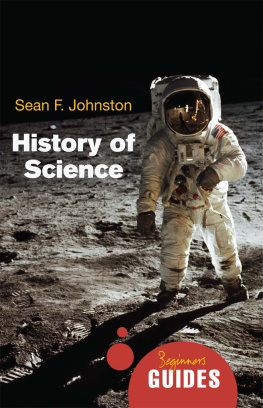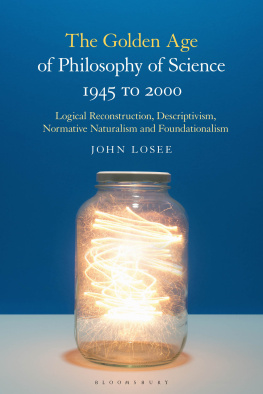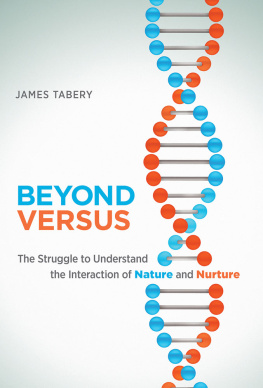History of Science
A Beginners Guide
ONEWORLD BEGINNERS GUIDES combine an original, inventive, and engaging approach with expert analysis on subjects ranging from art and history to religion and politics, and everything in between. Innovative and affordable, books in the series are perfect for anyone curious about the way the world works and the big ideas of our time.
aesthetics
africa
anarchism
aquinas
art
artificial intelligence
the bahai faith
the beat generation
biodiversity
bioterror & biowarfare
the brain
british politics
the buddha
cancer
censorship
christianity
civil liberties
classical music
climate change
cloning
cold war
conservation
crimes against humanity
criminal psychology
critical thinking
daoism
democracy
descartes
dyslexia
energy
engineering
the enlightenment
epistemology
evolution
evolutionary psychology
existentialism
fair trade
feminism
forensic science
french revolution
genetics
global terrorism
hinduism
history of science
humanism
islamic philosophy
journalism
judaism
lacan
life in the universe
literary theory
machiavelli
mafia & organized crime
magic
marx
medieval philosophy
middle east
NATO
nietzsche
the northern ireland conflict
oil
opera
the palestineisraeli conflict
paul
philosophy of mind
philosophy of religion
philosophy of science
planet earth
postmodernism
psychology
quantum physics
the quran
racism
renaissance art
shakespeare
the small arms trade
the torah
sufism
volcanoes


A Oneworld Paperback Original
Published by Oneworld Publications 2009
This ebook edition published in 2012
Copyright Sean F. Johnston 2009
The right of Sean F. Johnston to be identified as the Author of this work has been asserted by him in accordance with the Copyright, Designs and Patents Act 1988
All rights reserved
Copyright under Berne Convention
A CIP record for this title is available from the British Library
ISBN 9781851686810
ebook ISBN 9781780741598
Typeset in Jayvee, Trivandrum, India
Cover design by A. Meaden
Oneworld Publications
10 Bloomsbury Street
London WC1B 3SR
England
www.oneworld-publications.com
Stay up to date with the latest books, special offers, and exclusive content from Oneworld with our monthly newsletter
Sign up on our website
www.oneworld-publications.com
Preface
Historical studies of science and technology have acquired immense importance since the Second World War, and especially over the past few decades. Science itself has grown exponentially to involve more activity within living memory than through its previous history. Academics, government policy-makers, businesses, public interest groups and scientists themselves increasingly recognize the crucial role these subjects have had in extending knowledge, driving economies, influencing opinion and shaping culture. Science in the modern world is all-encompassing and contentious. Acronyms jostle for attention and comprehension in newspaper stories: GMOs, BSE, vCJD, WMD. We consume science in the films we watch, the electronic products we buy and the medications we choose. Science subtly determines our perceptions and powers, our lifestyles and longings.
Aspects of what we recognize as science have been part of human cultures since prehistory, though. As these activities have impinged increasingly on the consciousness of scholars and the public, the history of science has attracted further attention and been applied to conflicting purposes. For the British philosopher William Whewell, writing during the early nineteenth century, science (and the people defined by his new term, scientists) had long provided the key factor behind intellectual advancement. His History of the Inductive Sciences, published in 1837, helped to launch a new discipline. From the Victorian era until the Great Depression, the history of science was marshalled to show the inevitability of material progress. And for both American and Soviet philosophers after the Second World War, the trajectory of science in their nations represented the superiority of their respective political systems. But according to the counterculture ideals of the late 1960s, the history of science revealed a long-standing linkage between scientific knowledge and military and corporate power. Historians today recognize science as a human activity responsible in large part for the culture that we have inherited.
This book introduces both the history of science and the nature of the evolving discipline, and explains why they matter in contemporary society. It seeks to provide a brief historical survey of science and its relationship to culture and, at the same time, to inculcate in its readers an awareness of the changing definition of science and sensitivity to its historical interpretation. This traditionally has been a minefield for educators, with science students sometimes presuming that a history should reveal the progress or even moral improvement of humankind, and humanities students more often presuming tarnished or questionable ideals of what in the twentieth century became a pervasive cultural activity. The tone of the book seeks to give a nuanced appraisal of the evolution of science and rational approaches to the natural world from prehistory to the present day, and its integration into the practices and goals of Western societies over the past three centuries in particular. At the same time inevitably selective and limited in coverage it explores the nature of academic knowledge by providing an overview of the evolving discipline of history of science. The received wisdom about past science has changed dramatically in the last generation. This short book seeks to chart those changing directions.
I thank Marsha Filion of Oneworld Publications, who invited me to write this book, my students, who helped shape it, and my wife Libby and sons Daniel and Sam, for their ideas and support.
Sean Johnston
Illustrations
Introduction
History of science past and present
What is history of science? You have picked up this book with expectations, and maybe even unconscious assumptions. Today, more than ever, your assumptions may be different from those of others around you.
More than other forms of history, the history of science has often been written with a purpose, but those purposes and the conclusions they cite are today increasingly questioned. Are you looking forward to reading about geniuses and their life stories? About scientific breakthroughs and inevitable material progress through invention? About the challenging experiments, toil in the face of personal, institutional or military adversity, and the ultimate triumph of the intellect? Or (I hope) something more?
History of science has been all these things, but today strives to be much more. Written by scientists, history can seem self-serving; by philosophers, it can suggest a logical trajectory that is far too clear in retrospect. This potential for misrepresentation can have undesired side-effects: it can encourage unsustainable faith in sciences achievements, or provoke unreasonable criticisms of the cases that do not meet the mark, and may deter even bright students from confidently considering science as an attainable career.









